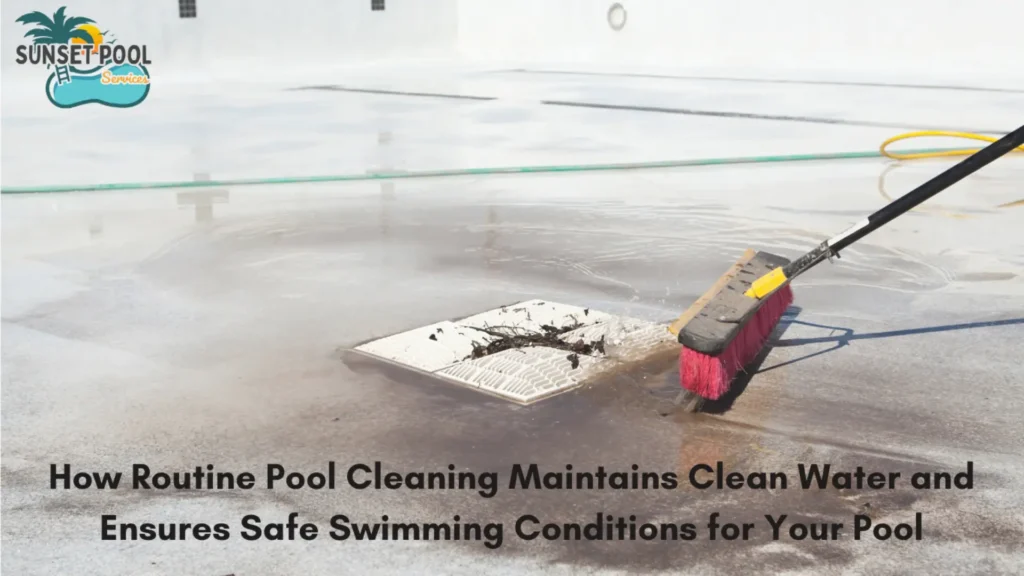Regular pool cleaning is essential to keep your pool’s water clear, healthy, and safe for swimming. Without proper maintenance, dirt, debris, and harmful bacteria can accumulate, making your pool an unpleasant or even dangerous environment. Routine pool cleaning plays a significant role in maintaining the chemical balance and cleanliness that your pool needs for safe and enjoyable use.
Enhancing Water Quality with Consistent Pool Cleaning
Routine pool cleaning is the first step to ensuring pristine water quality. Over time, debris such as leaves, insects, and dirt can accumulate on the surface and bottom of the pool. Without proper skimming and vacuuming, this debris sinks and decomposes, which negatively affects water clarity and can throw off the chemical balance.
By incorporating regular skimming, vacuuming, and brushing, pool cleaning prevents the buildup of dirt and ensures the water remains crystal clear. This not only improves the appearance of the pool but also creates a more inviting and comfortable swimming environment.
Maintaining Chemical Balance for Safe Swimming
The chemical balance of your pool water is key to maintaining a safe swimming environment. Routine pool cleaning helps regulate the water’s pH levels, chlorine content, and overall sanitation. Poor water chemistry can lead to skin irritations, eye discomfort, or even more serious health risks for swimmers.
By regularly testing the water and performing necessary adjustments to chlorine and pH levels, you can prevent bacteria growth and algae formation. Pool cleaning ensures that the water remains safe for swimmers, reducing the risk of illness or irritation while keeping the water fresh.
Preventing the Spread of Harmful Bacteria
One of the primary goals of regular pool cleaning is to prevent the growth and spread of harmful bacteria. Pools that are not cleaned frequently can become breeding grounds for bacteria, especially in areas where debris accumulates or where chlorine levels drop. Bacteria such as E. coli can thrive in stagnant or improperly treated water, putting swimmers at risk.
By maintaining a proper cleaning schedule and ensuring the right levels of sanitizing chemicals, pool cleaning protects against bacterial contamination. This makes your pool a safe place for family and friends to enjoy without concerns about waterborne illnesses.
Extending the Lifespan of Pool Equipment
Regular pool cleaning also plays a crucial role in maintaining the longevity of your pool’s equipment. Filters, pumps, and heaters work best when the water is free of debris and contaminants. If these components become clogged or overworked due to excessive dirt in the water, they can malfunction or wear out prematurely.
A consistent pool cleaning routine reduces the strain on your equipment, allowing it to function efficiently and last longer. Proper maintenance not only ensures clean water but also saves on repair costs in the long term, making your pool experience smoother and hassle-free.
Learn more:
The Value of Regular Pool Cleaning to Stop Algae Growth, Remove Debris, and Prevent Bacteria

